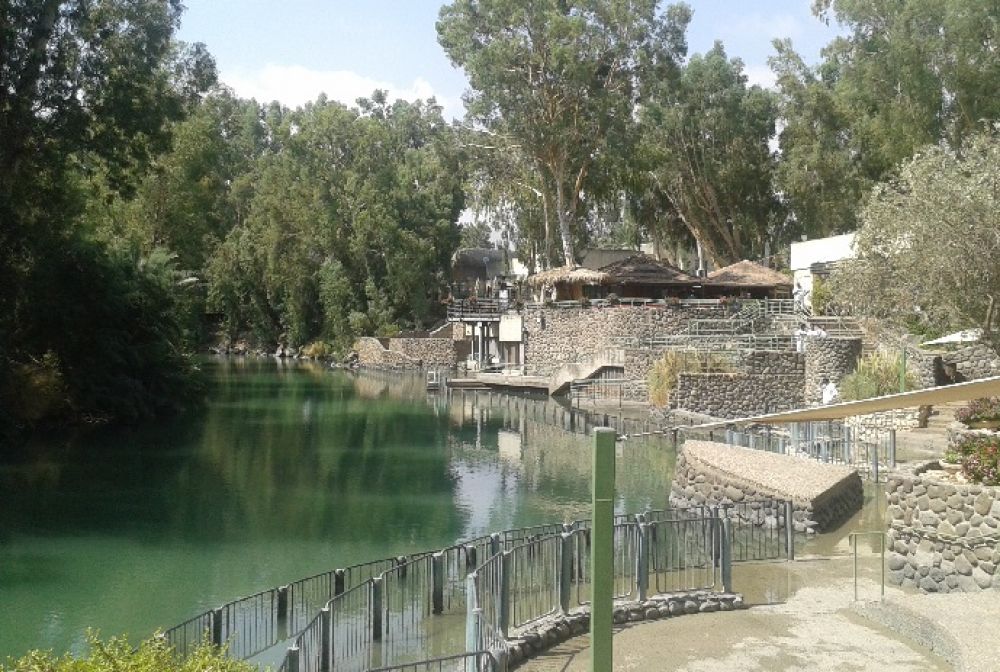

The Yardenit Baptismal Site, located on the banks of the Jordan River in the Galilee region near Tiberias, Israel, has been a magnet for Christian pilgrims for many years. The significance of this site is rooted in its association with the baptism of Jesus by John the Baptist, an event of great importance in the Christian faith. Although the exact spot of Jesus’ baptism is believed to be further south, the Qasr al-Yahud, Yardenit serves as a symbolic site where visitors can partake in baptismal ceremonies.
Before Yardenit became an established baptismal site, the Jordan River itself attracted thousands of pilgrims. This tradition dates back to the early centuries of Christianity. Over the years, as travel became more accessible, the number of visitors desiring to be baptized in the same river as Jesus increased.
The establishment of Yardenit, in 1981, was a result of the Israeli government's efforts to facilitate a more orderly and accessible baptismal experience. The site was officially opened to the public to accommodate the growing number of pilgrims and to alleviate congestion at traditional baptismal spots further south, which were often crowded and less accessible.
Yardenit quickly became a well-organized venue that could comfortably host large numbers of visitors. Facilities were developed, including changing rooms, showers, and a store where baptismal robes and other religious merchandise are sold. Over time, the site has become increasingly popular amongst not just pilgrims, but also tourists interested in the spiritual and historical aspects of the Jordan River.
Each year, Yardenits welcomes over half a million visitors from all over the world. Pilgrims often engage in baptism or renewal of baptism vows, and visitors can witness these ceremonies from the banks of the river or through organized guided tours.
In addition to the spiritual experience, Yardenit offers educational opportunities about the biblical and ecological significance of the Jordan River. Moreover, the site serves as an example of religious tolerance, as it welcomes people of different Christian denominations and other faiths.
Sustainability and environmental responsibility have become important trends in global tourism, and Yardenit has made strides toward eco-friendly operations. Efforts have been made to preserve the sanctity and cleanliness of the Jordan River, ensuring a sustainable future for the site.
Another latest trend is the integration of technology in enhancing the visitor experience. Yardenit's official website and virtual tours allow those unable to travel physically to the Holy Land an opportunity to experience the site from the comfort of their homes.
Furthermore, Yardenit has embraced the trend of personalization in tourism by offering special packages for groups desiring a private baptism experience. Modern concessions have been made to accommodate physical and logistical needs, while still respecting the traditional and religious significance of the site.
Yardenit remains a place where the past and present converge, offering a unique blend of religious significance, historical curiosity, and modern amenities. It stands as a testament to the enduring appeal of religious tourism and the importance of preserving such sites for future generations.